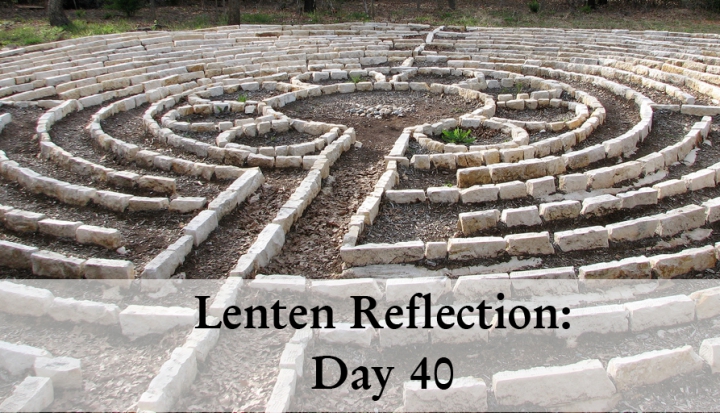Every day of Lent (minus Sundays), U.S. Catholic will bring you words of wisdom and questions for reflection from different spiritual writers, from C.S. Lewis to Henri Nouwen.
M. Shawn Copeland: A crucified messiah
There is little in contemporary life to help us grasp the horror and revulsion that people in the ancient world felt about crucifixion. Biblical scholars, historians and theologians spell out for us how the Romans used crucifixion to control subject peoples, subdue rebellious slaves and intimidate would-be insurrectionists. They describe in detail the excruciating physical suffering of crucifixion and stress the humiliation of such death. What shock the disciples and the crowd must have felt when Jesus offered the dare, If any want to become my followers, let them deny themselves and take up their cross and follow me (Mark 8:34). This summons ran counter to all religious, cultural and social expectations. Hearing this demand and recoiling from its implications, more than a few of the women and men who had been enthralled by the rabbi from Nazareth turned away. They feared crucifixion and wanted no part of it. But other women and men stumbled on after him and have done so ever since.
To follow Jesus of Nazareth is to follow a way that requires us to take up the cross. We never know precisely when or how the cross comes to us: deep darkness of mind or heart, aching and persistent loneliness, foreclosure of a future, immeasurable loss, diminishment, breakdowns in society, the burden of speaking truth. But when the cross presents itself, we must pick it up and follow Jesus. As we walk, the wide road yields to a narrow way; ruts and obstacles jolt us on the journey. Jesus is just ahead of us, but we see him as if through a glass darkly. Not much is clear. Faith and love, hope and prayer are the meat and bread, sweet and drink that sustain us along with the example of enslaved women and men, who have walked this way before us; indeed, they walk with us now. If we close our eyes and open our hearts, surely we can hear them singing to bear us up: O Jesus is our Captain/ We’ll meet at Zion’s gateway/ We’ll talk this story over/ We’ll enter into glory. (America magazine, February 26, 2007)
Reflection questions
1. We are so used to seeing the cross in our churches, religious art, and even jewelry that it is easy to get inured to the pain and suffering it symbolized in the ancient world. Take a few minutes and try to see the cross as ancient people must have. Is there any modern counterpart? What would it have been like to experience the crucifixion of Christ in the first century?
2. That in mind, what does it mean when Jesus tells us to take up our cross and follow him?
3. What comfort is there from to be gained from Jesus’ life and death?
M. Shawn Copeland is a professor of theology at Boston College.










